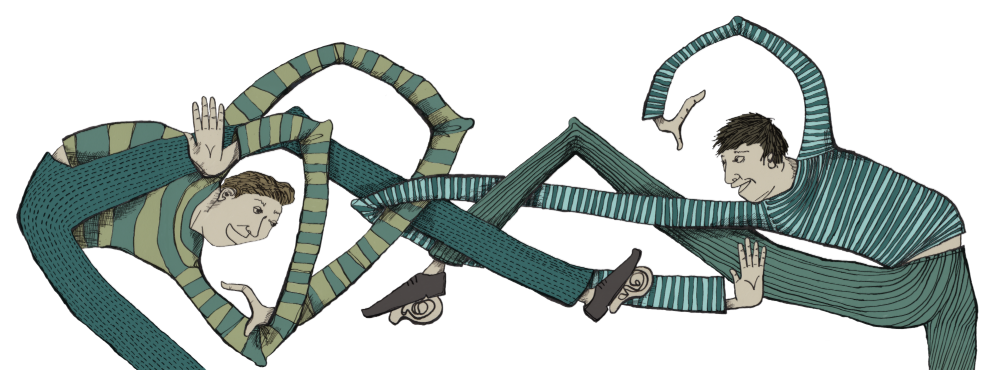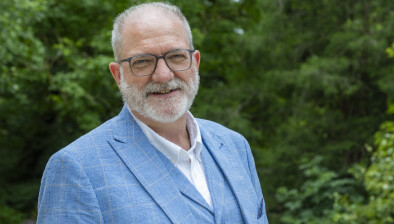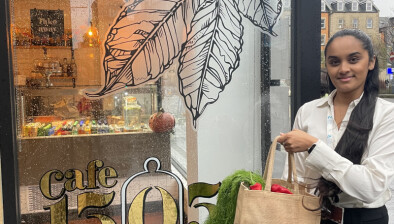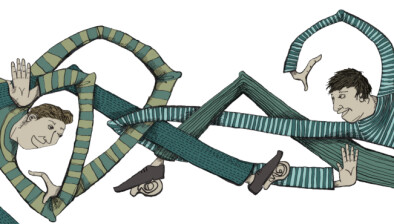Young Scots to learn about science of conflict at homelessness event

The Scottish Centre for Conflict Resolution has a number of free resources available
Cyrenians Scottish Centre for Conflict Resolution (SCCR) will hold its Event for Young People at Glasgow Science Centre tomorrow to allow Scotland’s Covid generation to learn about the ‘science of conflict’.
Kevin Stewart, minister for mental wellbeing and social care, will open the event with its keynote speech. The event will introduce over 100 young people from around Scotland to SCCR’s educational resources, including its latest, which will be launched that day.
Since its start in 2014, SCCR has become known for its free innovative and creative resources and developments. At the event, Young People will be introduced to and work with the educational resources SCCR has produced and which can be accessed via their website.
Young People will discover the science behind conflict and the brain, how to strengthen relationships, and how we can keep ourselves mentally and emotionally healthy.
At the Young Person’s Event, SCCR is also launching its latest project, The Three Brains, a new educational resource exploring the importance of the mind-body connection. After experiencing The Three Brains, young people will understand how the mind-body connection affects relationships and its relation to physical and emotional wellbeing; it also shows how to regain balance through an understanding of the science that drives us emotionally.
The Three Brains brings together animations, films and print resources, in collaboration with child development and mental health experts, award-winning web developers and designers, and a neuroscientist, a filmmaker and an illustrator.
Kevin Stewart MSP said: “I am pleased to be opening this year’s event and congratulate the Scottish Centre for Conflict Resolution on their innovative digital psycho-educational resources. The Scottish Government acknowledges the importance of their work around conflict resolution and stable family relationships which is crucial to good mental health and wellbeing.”
Diane Marr, the strategic lead for SCCR, said: “Digital multi-media resources are highly visual and engaging, providing an exciting opportunity to explore the science that underpins so much of how we make sense of ourselves and the world around us. Working with leaders in their field these developments take professional knowledge and distil it down. Our creative approach engages audiences with an understanding of conflict, the brain (neuroscience), child development, trauma, emotions, neurochemicals, actions and reactions and how these impact on relationships, mental health and wellbeing. We are delighted that our resources are being used across Scotland and around the world and will improve the lives of young people in Scotland and internationally.
“Conflict can lead to problems with mental health, relationship breakdown and, at worst, youth homelessness. Every year across Scotland, over 5,000 young people – the equivalent of around five high schools – become homeless due to family relationship breakdown: the biggest single cause of youth homelessness annually.”
SCCR’s innovative resources have been developed by the charity in response to the needs of young people, parents and carers and the professionals who work with them. A survey conducted by SCCR revealed young people wanted to understand more about how the brain and emotions develop.
Other survey results include:
- 42% of young people informed SCCR conflict at home happens at least weekly.
- 18% of young people thought about leaving home due to arguments at least on a monthly basis.
- 72% of young people would find it helpful to deal with or manage family arguments/disagreements better.
- 61% of young people said it would help to feel better supported in their family relationships.
Cyrenians CEO Ewan Aitken said: “The past few years have been incredibly challenging for young people, with, first, Covid and now the Cost of Living Crisis disrupting their home lives and education. The tensions unleashed within families through financial worries this winter will sadly see more young people leaving home to sofa surf or rough-sleep. The work of Cyrenians Scottish Centre for Conflict Resolution helping families resolve their differences before relationships crack is one way we can mitigate the number who do.
“The young people attending the event are not only receiving a grounding in the science of conflict, they’re learning to talk about and nurture their own wellbeing and those of others; as future leaders, they will help to shape how Scots talk about their emotional lives in the decades to come, a positive development not just for themselves but for the whole nation.”







